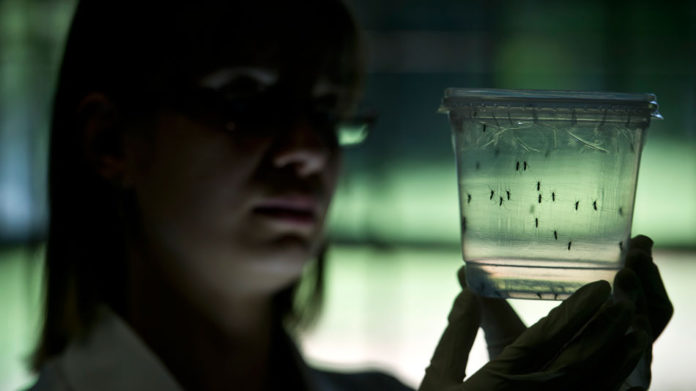Health authorities have confirmed an outbreak of the mosquito-borne virus Ross River in southern Queensland.
Experts said recent heavy rain and high tides had resulted in a rise in mosquito numbers and the number of people falling ill due to being bitten had increased significantly.
Earlier this month 380 people had been infected with the virus, and this figure has now risen to 1,000 cases since the start of the year, according to Queensland Health figures.
The health authority said it was not at an epidemic level but there were more cases than usual for this time of year.
Metro North public health physician Dr Megan Young said high tides and wet weather had increased mosquito breeding and the number of people being bitten.
“We’ve seen a much earlier peak in the number of cases,” she said.
Thousands of cases expected to emerge in coming weeks
The significant increase in Ross River virus cases has been predominantly across the south-east and health authorities said people should wear repellent or protective clothing.
Ross River virus is spread by the bite of infected mosquitoes and symptoms appear three to 11 days later.
There is no known cure and symptoms include painful or swollen joints, sore muscles, skin rashes, fever, fatigue and headaches.
The director of infectious diseases at Gold Coast University Hospital, Dr John Gerrard, said he expected thousands of cases to be confirmed in the coming weeks.
“The majority of people will recover within six weeks but some people will have symptoms that will last up to a number of months,” he said.
Former first-class soccer player Chris O’Connor is recovering from the illness.
The 29-year-old, who played for Gold Coast United, was bitten by mosquitoes as he rode his mountain bike through the Nerang State Forest.
“I … had no idea we could even get it down this far,” he said.
“You get bitten by mosquitoes and don’t even think of it but everything stopped working that’s why we came straight to A&E [accident and emergency].
“We live very close to it [the forest], I’d be riding there a couple of times a week, you know disappear for hours but I never thought you could pick up this in there.”
